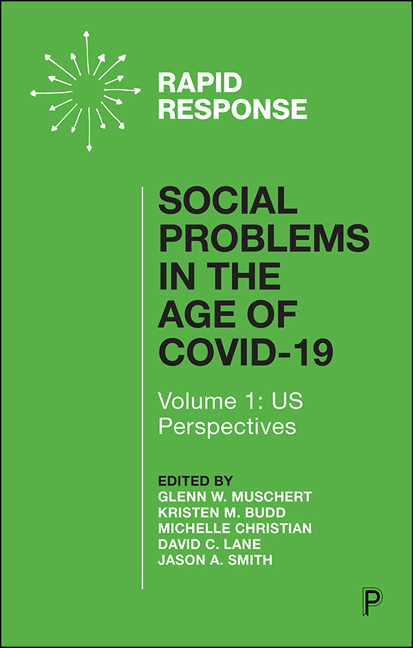10 - Birth in the US amid COVID-19
Published online by Cambridge University Press: 23 March 2021
Summary
The Problem
The COVID-19 pandemic has exposed and exacerbated existing social problems inherent in the US maternity care system. The US spends more money on hospital-based maternity care than any other nation in the world, yet has poorer and more disparate birth outcomes than most industrialized nations. The current system relies on what Robbie Davis-Floyd termed a “technocratic model of birth,” defined as a system of maternity care that treats birth as a medical event that requires hospitalization, and where birth is actively managed with technological interventions rather than treating it as a normal physiological process. This model prioritizes information gained from technological devices and medical tests over pregnant people's voices, which removes agency from birthing patients and fosters unequal outcomes. It subordinates providers such as midwives and doulas who are shown to have positive effects on birth outcomes. It produces disparate outcomes for pregnant people of color who have less access to high-quality facilities and receive unequal treatment from health care providers, resulting in higher risk of preterm births, unnecessary surgical births, and even death for the baby and the patients themselves.
Pandemics such as COVID-19 bring to light inherent problems with basing maternity care within an institution created to treat people who are sick. Many pregnant people are worried about becoming exposed to the novel coronavirus SARS-CoV-2 in the hospital while giving birth, and many health care systems are overburdened by the influx of patients needing treatment for COVID-19. In recent months, US hospitals have implemented policies during labor, delivery, and recovery to attempt to mitigate the potential spread of COVID-19, many of which have been applied unequally, worsened people's birth experiences, and contributed to other health problems such as unnecessary caesarean births, breastfeeding disruptions, and postpartum depression. Whereas some maternity wards have an abundance of personal protective equipment (PPE) and require mandatory COVID-19 testing, many wards in overburdened hospitals lack adequate equipment to ensure safety of health care workers and patients. Pregnant people in Black and Latinx communities are forced to navigate health care systems that are disproportionately overburdened, and they are at higher risk of exposure to the coronavirus during pregnancy or birth due to their social location and employment.
- Type
- Chapter
- Information
- Social Problems in the Age of COVID-19 Vol 1Volume 1: US Perspectives, pp. 102 - 112Publisher: Bristol University PressPrint publication year: 2020

